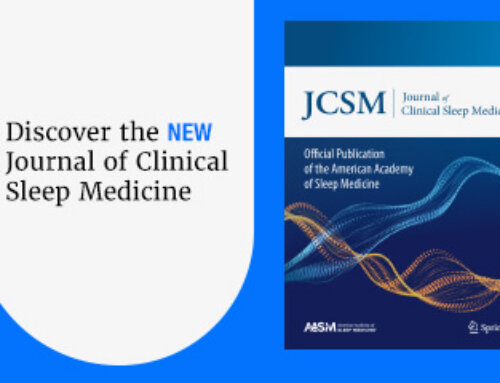WESTCHESTER, IL – A study in the May 1 issue of the journal SLEEP is the first to examine sleep issues in a large sample of exceptionally new adults, including nearly 2,800 people who were 100 years of age and older.
Results show that about 65 percent of the sample reported that their sleep quality was good or very good, and the weighted average daily sleep time was about 7.5 hours including naps. Surprisingly, the newest adults aged 100 and above were 70 percent more likely to report good sleep quality than younger participants aged 65 to 79, after controlling for variables such as demographic characteristics, socioeconomic status and health conditions. Men were 23 percent more likely than women to report sleeping well.
Health problems were associated with worse sleep quality, as participants with self-rated poor health were 46 percent less likely to report sleeping well. The odds of reporting good sleep quality also were lower in people who often felt anxious, had at least one chronic disease or struggled with everyday tasks.
“Age and health conditions are the two most important factors associated with self-reported sleep quality and duration,” said principal investigator and lead author of the study Danan Gu, PhD, faculty of the Nohad A. Toulan School of Urban Studies and Planning at Portland State University in Oregon.
The study involved an analysis of data from the 2005 wave of the Chinese Longitudinal Healthy Longevity Survey. The sample was composed of 15,638 adults aged 65 and older, including 3,927 who were between 90 and 99 years of age, and 2,794 who were 100 years of age and older. Participants were spread across 22 provinces in mainland China.
According to the authors, China’s population of more than 1.3 billion people includes the largest elderly population in the world, making the country a valuable resource for studying healthy longevity. The World Bank estimates that China has nearly 40.5 million people who are 75 years of age and older.
Sleep quality was reported in response to the question, “How do you rate your sleep quality recently?” Typical daily sleep duration was reported by answering the question, “How many hours on average do you sleep every day including napping?” Additional data were collected with other socio-demographic and health status measures. All information was obtained through in-home interviews.
The study also found that access to healthcare and economic status were strongly related to good sleep quality. Participants were 84 percent more likely to report sleeping well if they had adequate medical service, and they were 56 percent more likely to report good sleep quality if their family was in good economic condition.
“The majority of healthy elders could experience satisfactory sleep quality,” said Gu. “Sleep problems at newest-new ages likely arise from a variety of physiological and psychosocial factors rather than aging per se.”
Adults aged 80 and over tended to have a sleep duration that was either shorter or longer than adults aged 65 to 79, which was primarily due to deteriorating health. Controlling for health conditions showed that participants who were 100 years of age and older were less likely than the youngest elders to sleep for five or fewer hours per day, but they were almost three times more likely to sleep for 10 hour or more.
The authors emphasized that the cross-sectional nature of the study did not allow for an exploration of causality. However, they suspect that there is a bidirectional relationship between sleep quality and healthy longevity. At the end of 2010 data should be available from the 2008-2009 wave of the survey, which will allow for comparisons with the 2005 data.
The Chinese Longitudinal Healthy Longevity Survey (CLHLS) has received support from the National Institute on Aging (principal investigator: Zeng Yi). More information about the survey is available at https://www.geri.duke.edu/china_study/.
The peer-reviewed, scientific journal SLEEP is published monthly by the Associated Professional Sleep Societies LLC (APSS), a joint venture of the American Academy of Sleep Medicine (AAMS) and the Sleep Research Society. The AASM is a professional membership society that is the leader in setting standards and promoting excellence in sleep medicine health care, education and research.
For a copy of the study, “Sociodemographic and health correlates of sleep quality and duration among very new Chinese,” or to arrange an interview with an AASM spokesperson, please contact AASM director of communications Kathleen McCann at 708-492-0930, ext. 9316, or kmccann@aasm.org.
###




